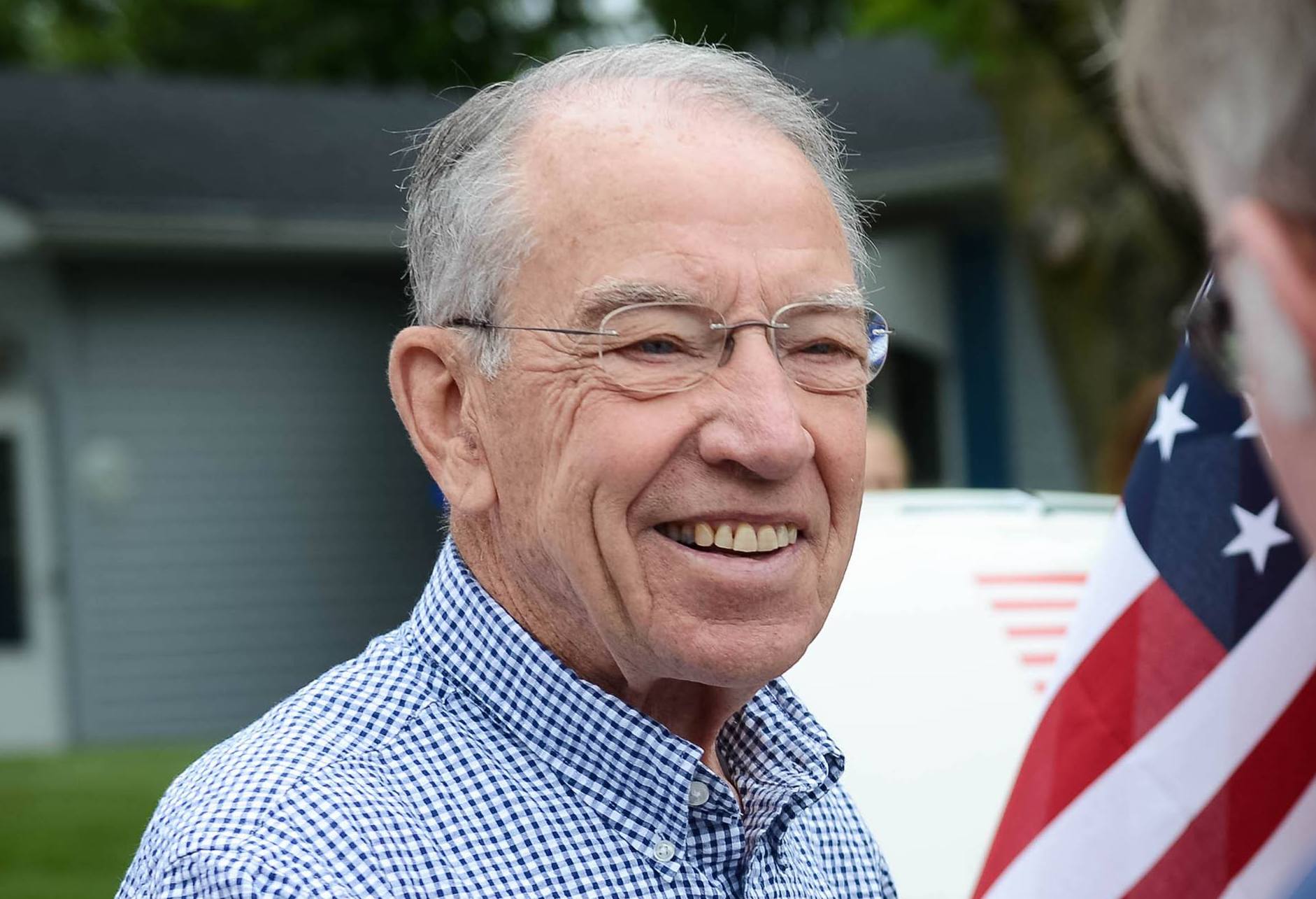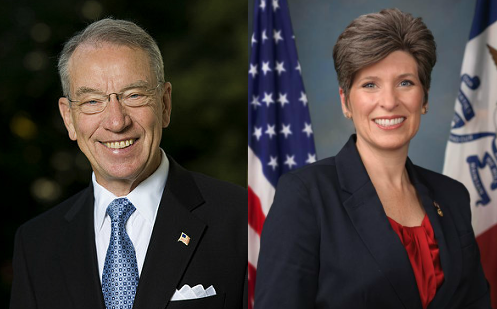The U.S. House on Friday evening approved Speaker John Boehner’s latest bill to sharply cut federal spending as a condition for raising the debt ceiling. The bill barely passed by a 218 to 210 vote (roll call). Every House Democrat present voted no, including Bruce Braley (IA-01), Dave Loebsack (IA-02), and Leonard Boswell (IA-03). The big surprise for me was that both Tom Latham (IA-04) and Steve King (IA-05) were among the 22 Republicans who voted against the bill. I expected King to oppose the measure, because many of his Tea Party Caucus colleagues believe Boehner isn’t cutting enough spending. But Latham is one of the speaker’s closest friends, and I thought he would be one of the votes putting the bill over the top. It was a tremendous struggle for Boehner to line up enough support for this bill; he had to delay Thursday’s scheduled vote in order to rewrite some provisions today.
Sometimes in situations like these, the House speaker gives some members in the majority caucus permission to vote no, if they are in tough districts. Latham will face Boswell in the new third Congressional district next year, and some of the spending cuts in this bill would affect popular programs. It’s possible Latham voted no with Boehner’s consent, once the speaker knew he had 218 yes votes lined up. That insulates Latham against some potential attack ads. However, Latham was on WHO radio this afternoon saying something must be done to ensure that the government pays its bills. If he acknowledges the need to raise the debt ceiling, when does he think a better deal will come around than Boehner’s bill?
Incidentally, House leaders don’t seem inclined to move on Latham’s bill to prioritize certain types of spending in case no debt ceiling deal is reached.
The U.S. Senate is expected to table the latest House bill on the debt ceiling later Friday evening. Senate Majority Leader Harry Reid has been working on a new “compromise” that is depressingly similar to what Boehner proposed, so Congress is probably headed toward a total Republican victory–big spending cuts, no revenue increases. Notably, if the U.S. ever does pull out of Iraq and Afghanistan, all the savings would go toward deficit reduction, rather than investing in our own infrastructure or social programs. Never mind that the U.S. economy is sputtering and will probably go back into recession under fiscal austerity. That serves Republican political interests as well, because President Barack Obama will be blamed for the downward spiral. Obama’s approval rating on the economy is already low, and most Americans think job creation is more important than deficit reduction right now.
For some reason, Obama prefers this outcome to Senator Tom Harkin’s advice: raise the debt ceiling by invoking the 14th Amendment to the U.S. Constitution.
UPDATE: On Friday night six Senate Republicans voted with all 53 members of the Democratic caucus to table the motion on concurring with Boehner’s bill (roll call). Grassley was among the 41 Republicans who opposed the motion to table.
Statements released by Latham, King, Loebsack and Braley are now after the jump.
SATURDAY UPDATE: The House rejected Senate Majority Leader Harry Reid’s bill on July 30; it was a symbolic vote because Reid is still revising the proposal, which so far doesn’t have enough support to overcome a Republican filibuster in the Senate.
Most House Democrats voted for the Reid bill, including Boswell. However, Braley and Loebsack were among the 11 Democrats who voted with all Republicans present against that bill (roll call). I am seeking comment from Braley and Loebsack offices on why they voted against the Reid proposal. It’s worth noting that like Boehner’s bill, Reid’s plan would cut more than $2 trillion in spending over the next decade, with no revenue increases. A total disgrace.
UPDATE: Loebsack released this statement about Saturday’s vote: “We must get Iowa’s economy moving forward. Today’s vote was not about a solution, it was about political leverage in Washington.”
FURTHER UPDATE: Here’s Harkin speaking on July 30:
“I’m talking about that there’s precedents for presidents to do things where the Constitution doesn’t give the president explicit authority but it doesn’t prohibit the president from doing it, and I believe there’s a basis in the 14th amendment as decided in Perry v. United States,” Sen Tom Harkin (D-IA) said on the Senate floor. “I think the president – barring action from the Congress – not only has the authority to do so, he has the responsibility to not let this country default.”
SUNDAY UPDATE: Senate Majority Leader Reid called a cloture motion on his horrendous compromise proposal Sunday afternoon. It needed 60 votes to pass but only received 50, mostly from Democrats (roll call). I don’t understand Harkin voting for cloture here, when the bill has none of the balance he has advocated. Maybe he planned to vote against the bill itself later–who knows? Grassley voted against cloture, as did every Republican present besides Scott Brown. I’ve added Grassley’s statement below.
Continue Reading...










